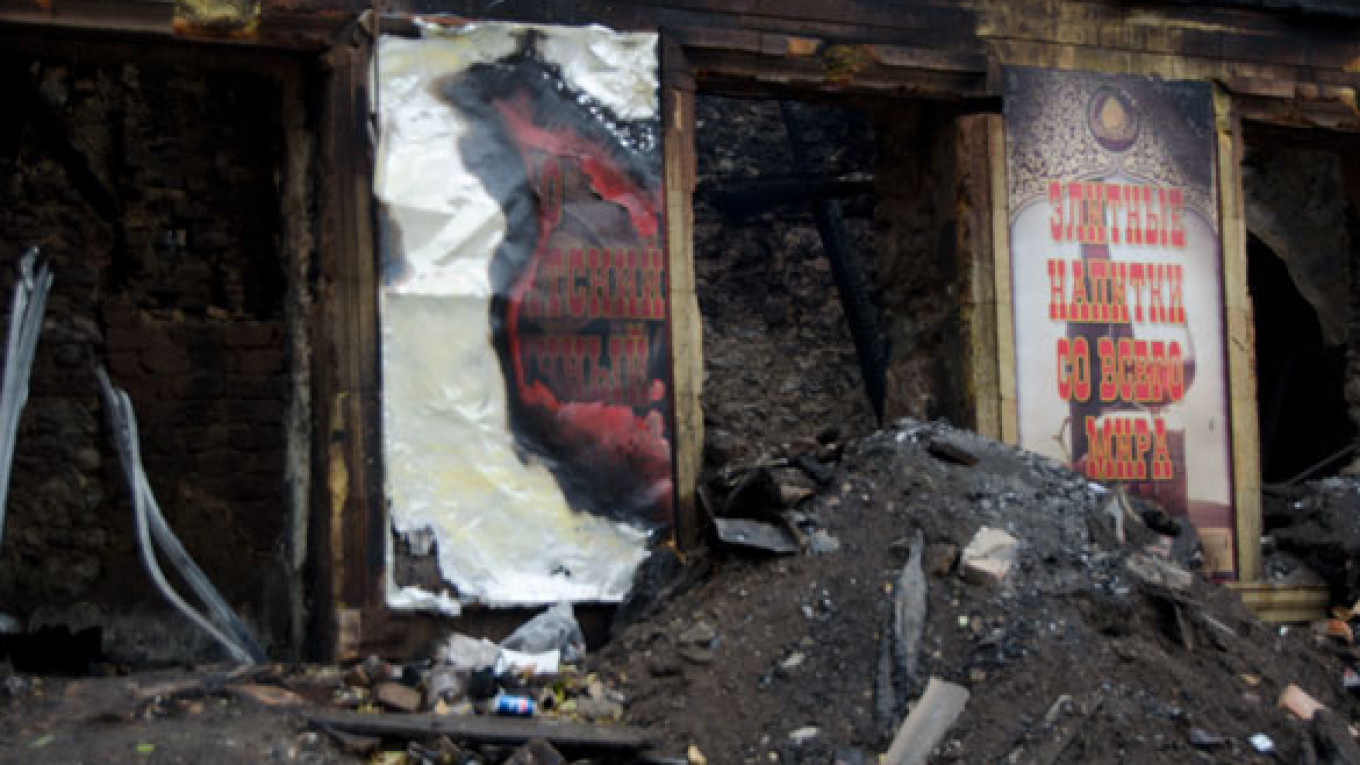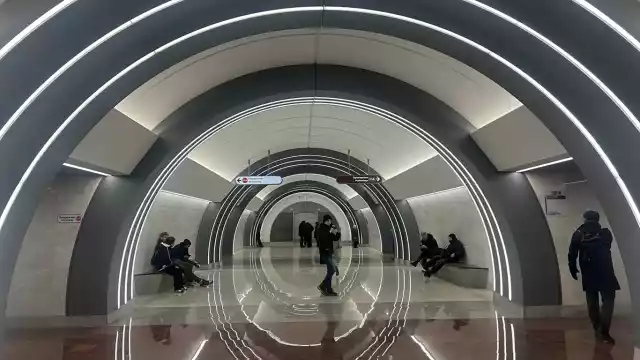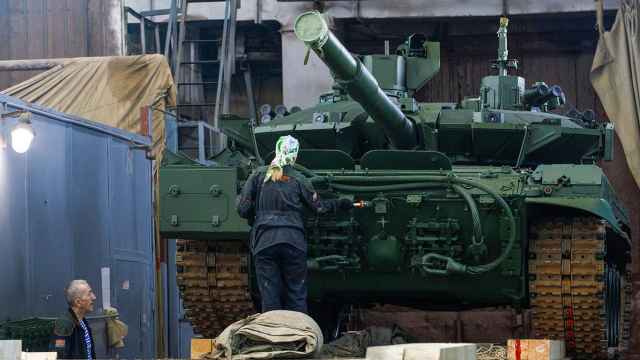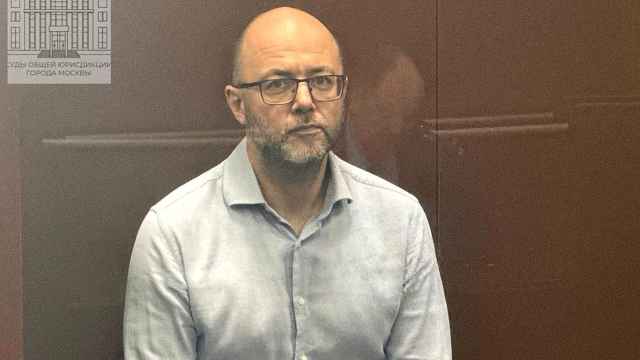MAKHACHKALA — The small, powerfully built man did not even remove his hat or loosen his heavy leather coat as he pulled out the photographs he had traveled 180 kilometers to show me.
"Just call me Primov," he said, carefully placing photographs of his brother's body on the table in the dim light of a shisha bar in Dagestan's capital, Makhachkala.
Each image detailed broken bones, cuts the shape of handcuffs, bruises the shape of truncheons and the other undeniable marks of torture that Niyaz Primov believes were inflicted by law enforcement officials.
Primov and other Dagestani residents fear that the authorities are using a Kremlin-sanctioned security crackdown ahead of the Winter Olympics in nearby Sochi to settle old scores and otherwise unfairly target locals.
Dagestan, located about 500 kilometers due east of Sochi, is a major worry for the authorities. The restive Muslim-dominated republic has been linked to three suicide bombings in Volgograd in October and December that killed about 40 people. Attacks in Dagestan itself have killed dozens of people over the past year, including two people who died in the bombing of a Makhachkala liquor store while I was researching this report.
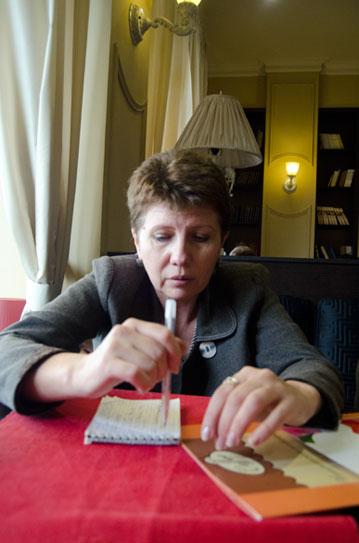
Yelena Denisenko, a member of the Dagestani branch of Memorial, a leading Russian rights group, shrugs off the risks of her work. "I've been taken to the police station a couple of times but let go," she said. "It's dangerous everywhere. … Even Moscow isn't safe."
Compounding tensions, North Caucasus militant leader Doku Umarov last July called on Muslims in the region to use "any methods that Allah allows us" to sabotage the Olympics.
President Vladimir Putin has vowed to keep the Olympics safe and has deployed some 40,000 law enforcement officials to Sochi for the games, which open Feb. 7.
But the safety measures may be coming at a high cost to some families. Eight Dagestani families met with me in Makhachkala to share their stories and their belief that the Olympic crackdown is to blame.
In the shadows of the shisha bar, Primov detailed in a measured monotone the circumstances that led to his brother's death.
The brother, Nasir Dzhavodov, 51, owned a hotel and restaurant near the lucrative Russian-Azeri border and had a long history of legal disputes with the authorities there.
"I believe that this killing is the revenge of the police because he had previously sued them and won damages," Primov said.
"People have no rights. It is like fascist Germany," he said. "The government says that they are building a constitutional state, but that's [expletive]. We are just slaves and, in Dagestan, the attitude of the state is that of a slave owner. Now with Sochi, they are doing whatever they like under the pretence of fighting crime."
Primov, a former army doctor, recited the grim litany of his brother's injuries as he pulled out photograph after photograph, made from video footage that he shot at the morgue.
"His ribs had been broken. His breastbone shattered. His collarbone was broken. One of his lungs was damaged, and he had bruising, hematomas and scratch marks all over his body," he said. "There were also heavy marks on his forearms from the handcuffs they had suspended him with. On his right foot, beneath the toenail, were marks where wire had been inserted."
Dzhavodov's home in the town of Magaramkent was raided by law enforcement officials in the early hours of Sept. 21 and weaponry was found linking him to the killing of a senior official in a neighboring district four years earlier. Dzhavodov was arrested and taken to Makhachkala.
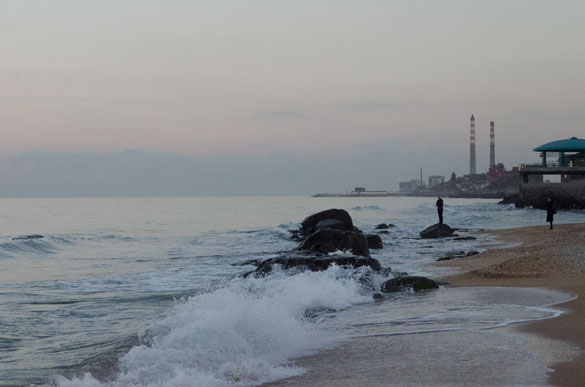
Makhachkala is perched on the western shore of the Caspian Sea.
"They left around noon in a convoy of six to seven cars. We asked how we could contact them, and they gave us a number," Primov said. "They told us they were taking him to Makhachkala for questioning. I wanted to go, but my friends advised me against it, saying they would go on my behalf.
"At about 5 p.m., I asked my friends where my brother was, if he was in a jail cell. They said, "No, he has been beaten to death and is in the morgue."
Primov said he immediately drove to Makhachkala and saw his brother's body in the morgue refrigeration unit at midnight. "They had already performed the autopsy, which is against Islamic tradition," he said.
It was there that Primov was able to film the injuries sustained by his brother, as well as have others inspect the body and later sign an affidavit about what they had seen.
It was the footage, still photos and the affidavit that Primov had driven 180 kilometers to give to me.
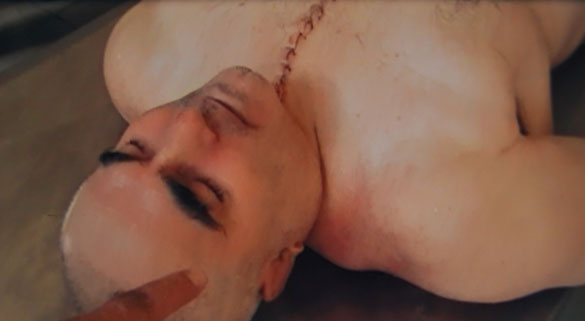
An image from the video footage that Niyaz Primov filmed of his brother Nasir Dzhavodov at the morgue. "They'd already performed the autopsy, which is against Islamic tradition," Primov said.
Doctor Sees Torture
The police explained to Primov that his brother had collapsed after complaining of feeling ill and the injuries had occurred when officials had sought to resuscitate him with CPR.
But few doubt that Dzhavodov was assaulted before his death, and Physicians for Human Rights, an organization responsible for providing scientific evidence of torture and other human rights abuses across 40 countries, declared that he had been tortured.
"The victim was tortured through beatings with a blunt object and the insertion of a sharp instrument under his toe nail." Dr. Robert Bux, a senior forensic pathologist for the organization, wrote in a report after viewing the video footage and affidavit.
Video: Selected scenes from video footage that Niyaz Primov filmed of the body of his badly injured brother Nasir Dzhavodov at the morgue in Makhachkala. The footage prompted an international watchdog to declare that Dzhavodov had been tortured.Warning: The video contains graphic and disturbing images. 18+
"The notion that the bruising on the body resulted from the administration of CPR is absurd, as none of the bruising is in the area one would expect CPR to be administered. CPR is administered in the middle one third of the sternum, which is located significantly above the observed contusions," said Bux, who has more than 25 years' experience as a medical examiner and has testified at international hearings, including the investigation of war crimes in the former Yugoslavia, Sierra Leone and Lima, Peru.
The video was also passed to the International Olympic Committee with an invitation to comment. Committee officials declined to do so.
While stories of killings and abductions are not new in Dagestan, the authorities have implemented a tougher security policy ahead of the Games, resulting in increased detentions and security checks, among other things, human rights observers said.
Putin "has made it clear that he will go to all lengths to prevent the insurgents from disrupting the Games," said Tanya Lokshina, a senior researcher at Human Rights Watch. "This explains the intense tightening of the screws and the change of policy in Dagestan."
Authorities have acknowledged that heightened security measures are in place but have offered little comment about individual cases in Dagestan. E-mailed requests sent to the Federal Security Service and the federal and Dagestani interior ministries for comment on this article went unanswered.
Stories of the Missing
The stories about the missing are many in Dagestan.
Patimat Abdulkadarova's son was suspected of being involved with the insurgency. He has been missing since June.
"The FSB abducted him on the corner of Mamedbekova and Dzhamala-Dolgata streets," Abdulkadarova said. "Both were busy streets. Three cars arrived without warning. They hit his head with the butts of their guns, shot him in the leg, and threw him in a white Lada Priora. There has been no news since then."
Abdulkadarova spoke in a small, cozily furnished living room on a Makhachkala side street. She and six other wives and mothers of missing people gathered here to tell me their stories. They were invited by Zhanna Ismailova, whose two sons disappeared in 2012 and now leads a campaign on behalf of the families of missing loved ones.
"I invited about 30 women here to meet you and tell their stories," she told me. "But not all of the mothers are like me. Some are afraid of losing their jobs or even their lives."
Ismailova does not know whether her sons' disappearances are linked to the Olympics. Her 28-year-old son, Rashid, was whisked away in a black Lada Priora as he was walking to work on May 8, 2012. "He was shot. The police arrived without an arrest warrant about five minutes later and claimed he was carrying bullets and a holster. Now nobody knows where Rashid is," she said.
Her second son, Ruslan, 33, was detained on June 22, 2012, on a charge of not carrying his passport, a misdemeanor punishable by a fine. His mother disputes the charge and said the police later planted a weapon on him. She said police allowed the family to visit a badly battered Ruslan in a jail cell five days later. "He had been tortured with electricity and beaten. They had hung him with handcuffs. After that, he had a stroke and the right side of his face was paralyzed," she said.
That was the last time that Ismailova saw Ruslan.
"I cannot say I am living. I am just existing," she said. "My only goal is to find my sons. That is why I have brought women together to fight for their sons. I am not afraid of anything."
But Ismailova said the authorities have been less than forthcoming.
"They tell us that all of this is connected to Sochi," she said. "We were told not to look for our sons now but to wait until after Sochi. But why do we need the Games? We just want our sons back."
'I Cannot Refuse to Help'
Across town, the pre-Sochi crackdown is proving as indiscriminate as it is unflinching. Ubaydula Ubaydulayev has been waiting for his son, Arslan, since he was arrested on June 14 on charges of giving a night's lodging to a known insurgent and old school friend two years earlier.
"It is not a Dagestani tradition to ask why someone might need to stay," he said. "We just let them in. My son told me, 'I cannot refuse my old classmate if he needs help. I cannot question him. I must help.'"
He said the police held Arslan for three days before the family was allowed access. He remains in jail, awaiting trial.
Nongovernmental organizations that assist the families also face increased risk from the authorities. In September, two members of the local NGO, Pravozaschita, or Advocacy, reported official harassment and arbitrary searches of their homes. One member, Zarema Bagautdinova, was detained on charges that she called fabricated.
But Yelena Denisenko, a member of the Dagestani branch of Memorial, a leading Russian rights group, shrugged off the risks. "I have been taken to the police station a couple of times but let go," she said. "It is dangerous everywhere. … Even Moscow is not safe."
It is impossible to guess whether the Dagestani crackdown will better secure the Olympic Games or even do much to damage the insurgency that has established itself here. It is only certain that a bitter price is being paid by the some families.
Back in the shisha bar, Primov looked me in the eye. "If you sow tears, you can only reap tears," he said. In Dagestan, the ground is wet.
Contact the author at [email protected]
A Message from The Moscow Times:
Dear readers,
We are facing unprecedented challenges. Russia's Prosecutor General's Office has designated The Moscow Times as an "undesirable" organization, criminalizing our work and putting our staff at risk of prosecution. This follows our earlier unjust labeling as a "foreign agent."
These actions are direct attempts to silence independent journalism in Russia. The authorities claim our work "discredits the decisions of the Russian leadership." We see things differently: we strive to provide accurate, unbiased reporting on Russia.
We, the journalists of The Moscow Times, refuse to be silenced. But to continue our work, we need your help.
Your support, no matter how small, makes a world of difference. If you can, please support us monthly starting from just $2. It's quick to set up, and every contribution makes a significant impact.
By supporting The Moscow Times, you're defending open, independent journalism in the face of repression. Thank you for standing with us.
Remind me later.


